#new england christmas
Text
the Christmas tree
The day after Thanksgiving is for two things and two things only. The first recouping after Thanksgiving and the copious amount of food consumed. The second is the official start of decorating for Christmas. You have painstakingly untangled all the lights and sorted the decorations in the order of room placement. Then, with a hot chocolate in hand, it’s time to pick a Christmas tree.
The…
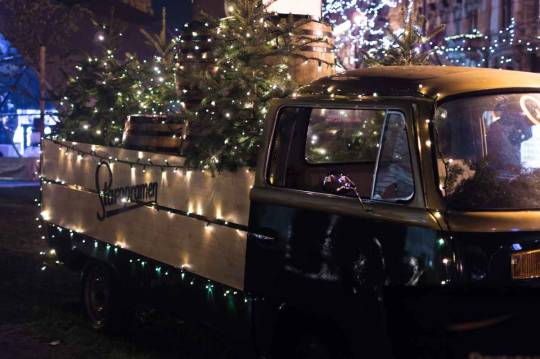
View On WordPress
#Boston#Christmas 2022#holidays#New England Christmas#short stories#The Christmas Tree#twenty-five days of Christmas
0 notes
Text



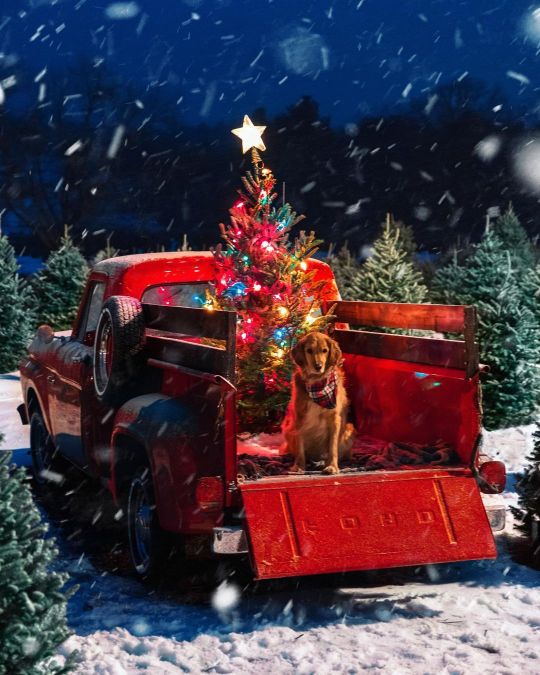
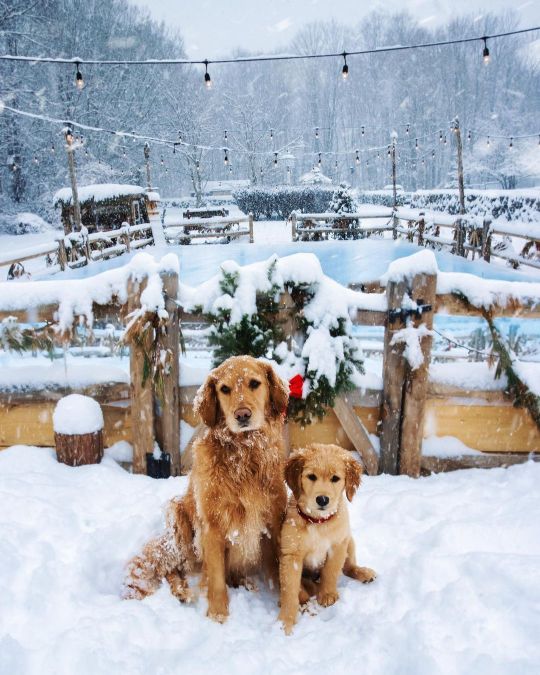

Kiel James Patrick
#winter#holly jolly#winter scenes#snow#making spirits bright#cute animals#doggies!#new england#christmas tree#curators on tumblr
498 notes
·
View notes
Text
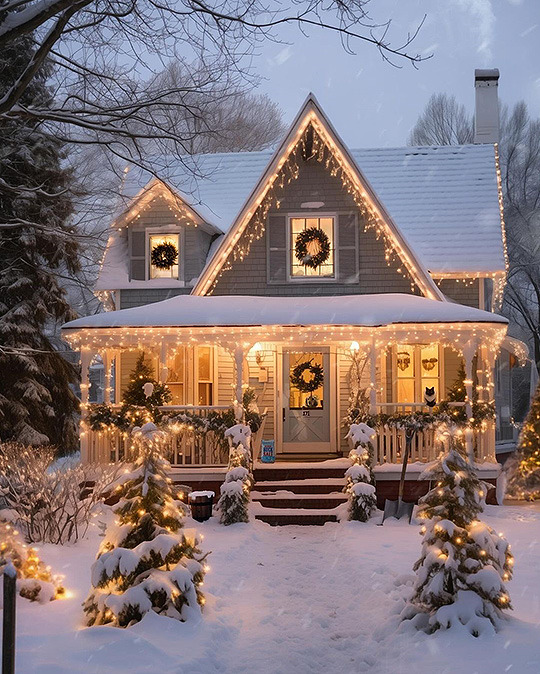
by kjp
#rhode island#new england#photography#Christmas#Xmas#Christmas Blog#Christmas Aesthetic#Merry Christmas#Holidays#Holiday Season#Festive#December#Christmas Decorations#Winter#Wintercozy#Winter Wonderland#Winter Aesthetic#Wintercore
287 notes
·
View notes
Text
Some Spotify Playlists for you to Enjoy
"I lived in New England for 6 months: this is the product of that"

"Studio Ghibli for my Declining Mental Health"

"Sheriff of a Small Town that Just had a Murder"

"Can't be a Breakup Playlist if I've Never Been Broken Up With"

"You'll Find Someone...It Just Ain't Me"

"I'm the Strong Independent Sci-Fi Female"

"I Went to Harvard in the 90's"

"I Like to Pretend I'm the Main Character But My Name is Emma"

"Play This When You're About to Have a Heart to Heart With Your Depressed Friends"

"Music to Dissociate to"

"DM Music to Set the Vibe"

"Songs That Scratch a Very Specific Part of My Brain"

"Christmas is More Fun After you Stop Being Catholic"

#music#spotify#playlist#dungeon master#christmas#edm#fantasy#scifi#new england#studio ghibli#country#rock#pop#pop music#alternative
280 notes
·
View notes
Text
Why People Are Wrong About the Puritans of the English Civil War and New England
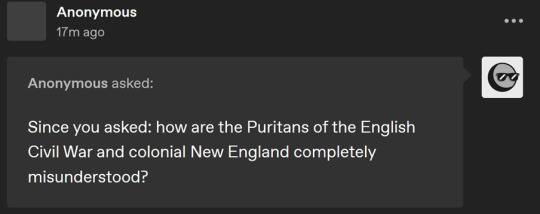



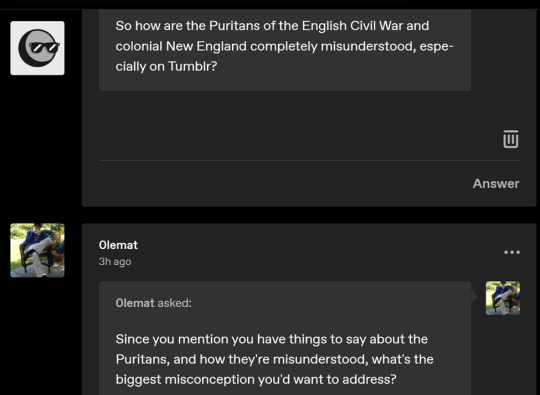
Oh well, if you all insist, I suppose I can write something.
(oh good, my subtle scheme is working...)
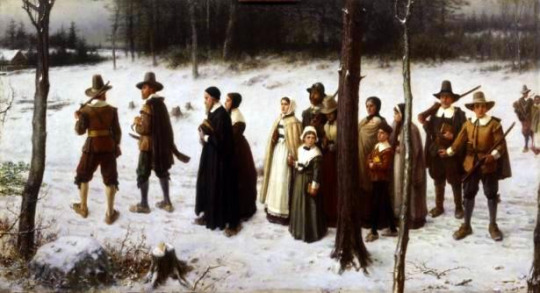
Introduction:
So the Puritans of the English Civil War is something I studied in graduate school and found endlessly fascinating in its rich cultural complexity, but it's also a subject that is popularly wildly misunderstood because it's caught in the jaws of a pair of distorted propagandistic images.
On the one hand, because the Puritans settled colonial New England, since the late 19th century they've been wrapped up with this nationalist narrative of American exceptionalism (that provides a handy excuse for schoolteachers to avoid talking about colonial Virginia and the centrality of slavery to the origins of the United States). If you went to public school in the United States, you're familiar with the old story: the United States was founded by a people fleeing religious persecution and seeking their freedom, who founded a society based on social contracts and the idea that in the New World they were building a city on a hill blah blah America is an exceptional and perfect country that's meant to be an example to the world, and in more conservative areas the whole idea that America was founded as an explicitly Christian country and society.
Then on the other hand, you have (and this is the kind of thing that you see a lot of on Tumblr) what I call the Matt Damon-in-Good-Will-Hunting, "I just read Zinn's People's History of the United States in U.S History 101 and I'm home for my first Thanksgiving since I left for colleg and I'm going to share My Opinions with Uncle Burt" approach. In this version, everything in the above nationalist narrative is revealed as a hideous lie: the Puritans are the source of everything wrong with American society, a bunch of evangelical fanatics who came to New England because they wanted to build a theocracy where they could oppress all other religions and they're the reason that abortion-banning, homophobic and transphobic evangelical Christians are running the country, they were all dour killjoys who were all hopelessly sexually repressed freaks who hated women, and the Salem Witch Trials were a thing, right?
And if anyone spares a thought to examine the role that Puritans played in the English Civil War, it basically short-hands to Oliver Cromwell is history's greatest monster, and didn't they ban Christmas?
Here's the thing, though: as I hope I've gotten across in my posts about Jan Hus, John Knox, and John Calvin, the era of the Reformation and the Wars of Religion that convulsed the Early Modern period were a time of very big personalities who were complicated and not very easy for modern audiences to understand, because of the somewhat oblique way that Early Modern people interpreted and really believed in the cultural politics of religious symbolism.
So what I want to do with this post is to bust a few myths and tease out some of the complications behind the actual history of the Puritans.
Did the Puritans Experience Religious Persecution?
Yes, but that wasn't the reason they came to New England, or at the very least the two periods were divided by some decades. To start at the beginning, Puritans were pretty much just straightforward Calvinists who wanted the Church of England to be a Calvinist Church. This was a fairly mainstream position within the Anglican Church, but the "hotter sort of Protestant" who started to organize into active groups during the reigns of Elizabeth and James I were particularly sensitive to religious symbolism they (like the Hussites) felt smacked of Catholicism and especially the idea of a hierarchy where clergy were a better class of person than the laity.
So for example, Puritans really first start to emerge during the Vestments Controversy in the reign of Edward VI where Bishop Hooper got very mad that Anglican priests were wearing the cope and surplice, which he thought were Catholic ritual garments that sought to enhance priestly status and that went against the simplicity of the early Christian Church. Likewise, during the run-up to the English Civil War, the Puritans were extremely sensitive to the installation of altar rails which separated the congregation from the altar - they considered this to be once again a veneration of the clergy, but also a symbolic affirmation of the Catholic doctrine of transubstantiation.
At the same time, they were not the only religious faction within the Anglican Church - and this is where the religious persecution thing kicks in, although it should be noted that this was a fairly brief but very emotionally intense period. Archbishop William Laud was a leading High Church Episcopalian who led a faction in the Church that would become known as Laudians, and he was just as intense about his religious views as the Puritans were about his. A favorite of Charles I and a first advocate of absolutist monarchy, Laud was appointed Archbishop of Canturbury in 1630 and acted quickly to impose religious uniformity of Laudian beliefs and practices - ultimately culminating in the disastrous decision to try imposing Episcopalianism on Scotland that set off the Bishop's Wars.
The Puritans were a special target of Laud's wrath: in addition to ordering the clergy to do various things offensive to Puritans that he used as a shibboleth to root out clergy with Puritan sympathies and fire them from their positions in the Church, he established official religious censors who went after Puritan writers like William Prynne for seditious libel and tortured them for their criticisms of his actions, cropping their ears and branding them with the letters SL on their faces. Bringing together the powers of Church and State, Laud used the Court of Star Chamber (a royal criminal court with no system of due process) to go after anyone who he viewed as having Puritan sympathies, imposing sentences of judicial torture along the way.
It was here that the Puritans began to make their first connections to the growing democratic movement in England that was forming in opposition to Charles I, when John Liliburne the founder of the Levellers was targeted by Laud for importing religious texts that criticized Laudianism - Laud had him repeatedly flogged for challenging the constitutionality of the Star Chamber court, and "freeborn John" became a martyr-hero to the Puritans.
When the Long Parliament met in 1640, Puritans were elected in huge numbers, motivated as they were by a combination of resistance to the absolutist monarchism of Charles I and the religious policies of Archbishop Laud - who Parliament was able to impeach and imprison in the Tower of the London in 1641.
This relatively brief period of official persecution that powerfully shaped the Puritan mindset was nevertheless disconnected from the phenomena of migration to New England - which had started a decade before Laud became Archbishop of Canterbury and continued decades after his impeachment.
The Puritans Just Wanted to Oppress Everyone Else's Religion:
This is the very short-hand Howard Zinn-esque critique we often see of the Puritan project in the discourse, and while there is a grain of truth to it - in the Massachusetts Bay Colony, the Congregational Church was the official state religion, no other church could be established without permission from the Congregational Church, all residents were required to pay taxes to support the Congregational Church, and only Puritans could vote. Moreover, there were several infamous incidents where the Puritan establishment put Anne Hutchinson on trial and banished her, expelled Roger Williams, and hanged Quakers.
Here's the thing, though: during the Early Modern period, every single side of every single religious conflict wanted to establish religious uniformity and oppress the heretics: the Catholics did it to the Protestants where they could mobilize the power of the Holy Roman Emperor against the Protestant Princes, the Protestants did it right back to the Catholics when Gustavus Adolphus' armies rolled through town, the Lutherans and the Catholics did it to the Calvinists, and everybody did it to the Anabaptists.
That New England was founded as a Calvinist colony is pretty unremarkable, in the final analysis. (By the by, both Hutchinson and Williams were devout if schismatic Puritans who were firmly of the belief that the Anglican Church was a false church.) What's more interesting is how quickly the whole religious project broke down and evolved into something completely different.
Essentially, New England became a bunch of little religious communes that were all tax-funded, which is even more the case because the Congregationalist Church was a "gathered church" where the full members of the Church (who were the only people allowed to vote on matters involving the church, and were the only ones who were allowed to be given baptism and Communion, which had all kinds of knock-on effects on important social practices like marriages and burials) and were made up of people who had experienced a conversion where they can gained an assurance of salvation that they were definitely of the Elect. You became a full member by publicly sharing your story of conversion (which had a certain cultural schema of steps that were supposed to be followed) and having the other full members accept it as genuine.
This is a system that works really well to bind together a bunch of people living in a commune in the wilderness into a tight-knit community, but it broke down almost immediately in the next generation, leading to a crisis called the Half-Way Covenant.
The problem was that the second generation of Puritans - all men and women who had been baptized and raised in the Congrgeationalist Church - weren't becoming converted. Either they never had the religious awakening that their parents had had, or their narratives weren't accepted as genuine by the first generation of commune members. This meant that they couldn't hold church office or vote, and more crucially it meant that they couldn't receive the sacrament or have their own children baptized.
This seemed to suggest that, within a generation, the Congregationalist Church would essentially define itself into non-existence and between the 1640s and 1650s leading ministers recommended that each congregation (which was supposed to decide on policy questions on a local basis, remember) adopt a policy whereby the children of baptized but unconverted members could be baptized as long as they did a ceremony where they affirmed the church covenant. This proved hugely controversial and ministers and laypeople alike started publishing pamphlets, and voting in opposing directions, and un-electing ministers who decided in the wrong direction, and ultimately it kind of broke the authority of the Congregationalist Church and led to its eventual dis-establishment.
The Puritans are the Reason America is So Evangelical:
This is another area where there's a grain of truth, but ultimately the real history is way more complicated.
Almost immediately from the founding of the colony, the Puritans begin to undergo mutation from their European counterparts - to begin with, while English Puritans were Calvinists and thus believed in a Presbyterian form of church government (indeed, a faction of Puritans during the English Civil War would attempt to impose a Presbyterian Church on England.), New England Puritans almost immediately adopted a congregationalist system where each town's faithful would sign a local religious constitution, elect their own ministers, and decide on local governance issues at town meetings.
Essentially, New England became a bunch of little religious communes that were all tax-funded, which is even more the case because the Congregationalist Church was a "gathered church" where the full members of the Church (who were the only people allowed to vote on matters involving the church, and were the only ones who were allowed to be given baptism and Communion, which had all kinds of knock-on effects on important social practices like marriages and burials) and were made up of people who had experienced a conversion where they can gained an assurance of salvation that they were definitely of the Elect. You became a full member by publicly sharing your story of conversion (which had a certain cultural schema of steps that were supposed to be followed) and having the other full members accept it as genuine.
This is a system that works really well to bind together a bunch of people living in a commune in the wilderness into a tight-knit community, but it broke down almost immediately in the next generation, leading to a crisis called the Half-Way Covenant.
The problem was that the second generation of Puritans - all men and women who had been baptized and raised in the Congrgeationalist Church - weren't becoming converted. Either they never had the religious awakening that their parents had had, or their narratives weren't accepted as genuine by the first generation of commune members. This meant that they couldn't hold church office or vote, and more crucially it meant that they couldn't receive the sacrament or have their own children baptized.
This seemed to suggest that, within a generation, the Congregationalist Church would essentially define itself into non-existence and between the 1640s and 1650s leading ministers recommended that each congregation (which was supposed to decide on policy questions on a local basis, remember) adopt a policy whereby the children of baptized but unconverted members could be baptized as long as they did a ceremony where they affirmed the church covenant. This proved hugely controversial and ministers and laypeople alike started publishing pamphlets, and voting in opposing directions, and un-electing ministers who decided in the wrong direction, and accusing one another of being witches. (More on that in a bit.)
And then the Great Awakening - which to be fair, was a major evangelical effort by the Puritan Congregationalist Church, so it's not like there's no link between evangelical - which was supposed to promote Congregational piety ended up dividing the Church and pretty soon the Congregationalist Church is dis-established and it's safe to be a Quaker or even a Catholic on the streets of Boston.
But here's the thing - if we look at which denominations in the United States can draw a direct line from themselves to the Congregationalist Church of the Puritans, it's the modern Congregationalists who are entirely mainstream Protestants whose churches are pretty solidly liberal in their politics, the United Church of Christ which is extremely cultural liberal, and it's the Unitarian Universalists who are practically issued DSA memberships. (I say this with love as a fellow comrade.)
By contrast, modern evangelical Christianity (although there's a complicated distinction between evangelical and fundamentalist that I don't have time to get into) in the United States is made up of an entirely different set of denominations - here, we're talking Baptists, Pentacostalists, Methodists, non-denominational churches, and sometimes Presbyterians.
The Puritans Were Dour Killjoys Who Hated Sex:
This one owes a lot to Nathaniel Hawthorne's Scarlet Letter.
The reality is actually the opposite - for their time, the Puritans were a bunch of weird hippies. At a time when most major religious institutions tended to emphasize the sinful nature of sex and Catholicism in particular tended to emphasize the moral superiority of virginity, the Puritans stressed that sexual pleasure was a gift from God, that married couples had an obligation to not just have children but to get each other off, and both men and women could be taken to court and fined for failing to fulfill their maritial obligations.
The Puritans also didn't have much of a problem with pre-marital sex. As long as there was an absolute agreement that you were going to get married if and when someone ended up pregnant, Puritan elders were perfectly happy to let young people be young people. Indeed, despite the objection of Jonathan Edwards and others there was an (oddly similar to modern Scandinavian customs) old New England custom of "bundling," whereby a young couple would be put into bed together by their parents with a sack or bundle tied between them as a putative modesty shield, but where everyone involved knew that the young couple would remove the bundle as soon as the lights were turned out.
One of my favorite little social circumlocutions is that there was a custom of pretending that a child clearly born out of wedlock was actually just born prematurely to a bride who was clearly nine months along, leading to a rash of surprisingly large and healthy premature births being recorded in the diary of Puritan midwife Martha Ballard. Historians have even applied statistical modeling to show that about 30-40% of births in colonial America were pre-mature.
But what about non-sexual dourness? Well, here we have to understand that, while they were concerned about public morality, the Puritans were simultaneously very strict when it came to matters of religion and otherwise normal people who liked having fun. So if you go down the long list of things that Puritans banned that has landed them with a reputation as a bunch of killjoys, they usually hide some sort of religious motivation.
So for example, let's take the Puritan iconoclastic tendency to smash stained glass windows, whitewash church walls, and smash church organs during the English Civil War - all of these things have to do with a rejection of Catholicism, and in the case of church organs a belief that the only kind of music that should be allowed in church is the congregation singing psalms as an expression of social equality. At the same time, Puritans enjoyed art in a secular context and often had portraits of themselves made and paintings hung on their walls, and they owned musical instruments in their homes.
What about the wearing nothing but black clothing? See, in our time wearing nothing but black is considered rather staid (or Goth), but in the Early Modern period the dyes that were needed to produce pure black cloth were incredibly expensive - so wearing all black was a sign of status and wealth, hence why the Hapsburgs started emphasizing wearing all-black in the same period. However, your ordinary Puritan couldn't afford an all-black attire and would have worn quite colorful (but much cheaper) browns and blues and greens.
What about booze and gambling and sports and the theater and other sinful pursuits? Well, the Puritans were mostly ok with booze - every New England village had its tavern - but they did regulate how much they could serve, again because they were worried that drunkenness would lead to blasphemy. Likewise, the Puritans were mostly ok with gambling, and they didn't mind people playing sports - except that they went absolutely beserk about drinking, gambling, and sports if they happened on the Sabbath because the Puritans really cared about the Sabbath and Charles I had a habit of poking them about that issue. They were against the theater because of its association with prostitution and cross-dressing, though, I can't deny that. On the other hand, the Puritans were also morally opposed to bloodsports like bear-baiting, cock-fighting, and bare-knuckle boxing because of the violence it did to God's creatures, which I guess makes them some of the first animal rights activsts?
They Banned Christmas:
Again, this comes down to a religious thing, not a hatred of presents and trees - keep in mind that the whole presents-and-trees paradigm of Christmas didn't really exist until the 19th century and Dickens' Christmas Carol, so what we're really talking about here is a conflict over religious holidays - so what people were complaining about was not going to church an extra day in the year. I don't get it, personally.
See, the thing is that Puritans were known for being extremely close Bible readers, and one of the things that you discover almost immediately if you even cursorily read the New Testament is that Christ was clearly not born on December 25th. Which meant that the whole December 25th thing was a false religious holiday, which is why they banned it.
The Puritans Were Democrats:
One thing that I don't think Puritans get enough credit for is that, at a time when pretty much the whole of European society was some form of monarchist, the Puritans were some of the few people out there who really committed themselves to democratic principles.
As I've already said, this process starts when John Liliburne, an activist and pamphleteer who promoted the concept of universal human rights (what he called "freeborn rights"), took up the anti-Laudian cause and it continued through the mobilization of large numbers of Puritans to campaign for election to the Long Parliament.
There, not only did the Puritans vote to revenge themselves on their old enemy William Laud, but they also took part in a gradual process of Parliamentary radicalization, starting with the impeachment of Strafford as the architect of arbitrary rule, the passage of the Triennal Acts, the re-statement that non-Parliamentary taxation was illegal, the Grand Remonstrance, and the Militia Ordinance.
Then over the course of the war, Puritans served with distinction in the Parliamentary army, especially and disproportionately in the New Model Army where they beat the living hell out of the aristocratic armies of Charles I, while defying both the expectations and active interference of the House of Lords.
At this point, I should mention that during this period the Puritans divided into two main factions - Presbyterians, who developed a close political and religious alliance with the Scottish Covenanters who had secured the Presbyterian Church in Scotland during the Bishops' Wars and who were quite interested in extending an established Presbyterian Church; and Independents, who advocated local congregationalism (sound familiar) and opposed the concept of established churches.
Finally, we have the coming together of the Independents of the New Model Army and the Leveller movement - during the war, John Liliburne had served with bravery and distinction at Edgehill and Marston Moore, and personally capturing Tickhill Castle without firing a shot. His fellow Leveller Thomas Rainsborough proved a decisive cavalry commander at Naseby, Leicester, the Western Campaign, and Langport, a gifted siege commander at Bridgwater, Bristol, Berkeley Castle, Oxford, and Worcester.
Thus, when it came time to hold the Putney Debates, the Independent/Leveller bloc had both credibility within the New Model Army and the only political program out there. Their proposal:
redistricting of Parliament on the basis of equal population; i.e one man, one vote.
the election of a Parliament every two years.
freedom of conscience.
equality under the law.
In the context of the 17th century, this was dangerously radical stuff and it prompted Cromwell and Fairfax into paroxyms of fear that the propertied were in danger of being swamped by democratic enthusiasm - leading to the imprisonment of Lilburne and the other Leveller leaders and ultimately the violent suppression of the Leveller rank-and-file.
As for Cromwell, well - even the Quakers produced Richard Nixon.
#history#puritans#calvinism#english civil war#oliver cromwell#the stupid meme about christmas#new england#protestantism
422 notes
·
View notes
Text
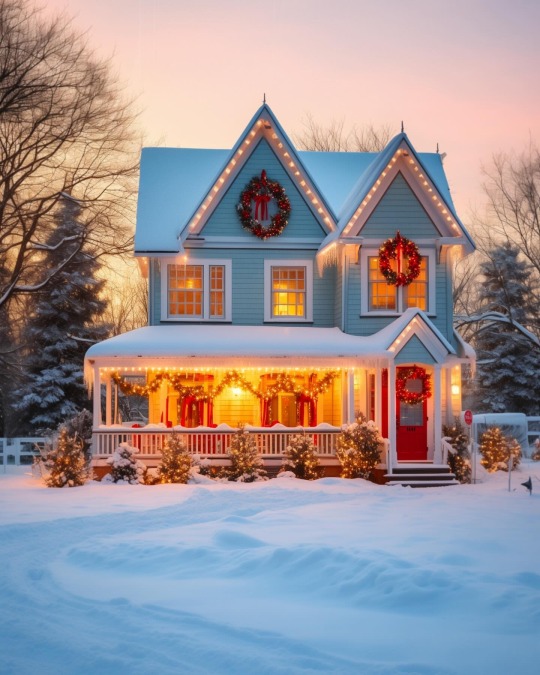
𝐊𝐢𝐞𝐡𝐥 𝐉𝐚𝐦𝐞𝐬 𝐏𝐚𝐭𝐫𝐢𝐜𝐤
𝗁𝗍𝗍𝗉s://instagram.com/kjp
104 notes
·
View notes
Photo
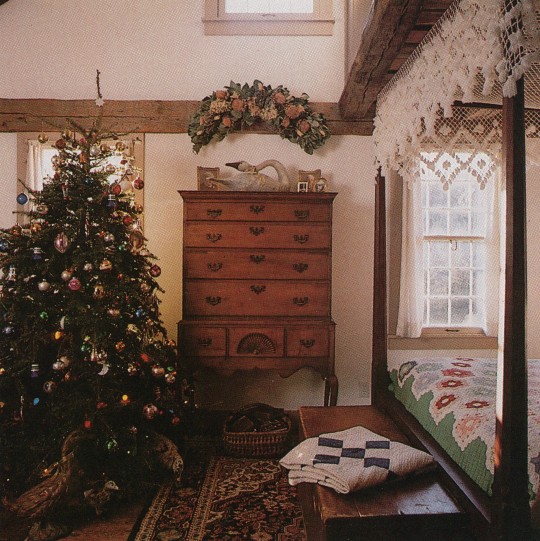
Walls finished in white plaster accentuate the massive chestnut and pine beams left visible throughout the house. The tester bed was made by decoy carve Richard Morgan, a Woodbury resident.
American Country: The Country Home, 1988
#vintage#vintage interior#1980s#80s#interior design#home decor#bedroom#Christmas#tree#highboy#chest#quilt#canopy bed#New England#garland#country#home#architecture#American#style
638 notes
·
View notes
Text
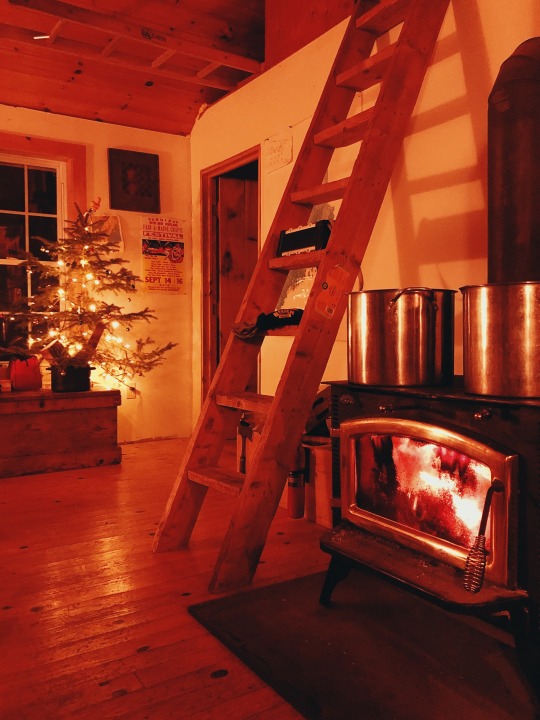
#new england aesthetic#christmas#cabincore#maine#original photography on tumblr#cozy aesthetic#cozy living#christmas aesthetic#xmas#xmas tree#christmas tree#cabin in the woods#wood stove#cozy space#fire
855 notes
·
View notes
Text
It’s kinda messed up how those other reindeer never let Rudolph join in any reminder games…🦌♦️🤹🏼♀️ until Santa 🎅 asked him to guide his sleigh … 🙃
#mine#me#winter#massachusetts#snow angel#winter wonderland#christmas#merry Christmas#selfie#self#youniverse#Rudolph#merry crisis#merry chrysler#New England#snow#white christmas#energy#meow#love#fuzzy#cozy#fuzzy sweater#fuzzy hood#hoodie#angel#angelcore#ice queen#ice princess#ice
116 notes
·
View notes
Text



This was such a lovely scene.
The Holdovers (2023), Alexander Payne.
#christmas#the holdovers#christmas movie#christmas film#christmas spirit#alexander payne#paul giamatti#dominic sessa#winter#new england#cozy
53 notes
·
View notes
Text



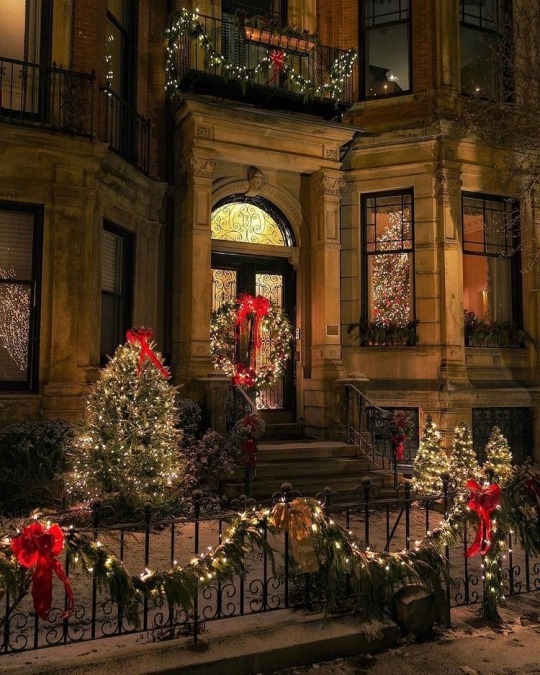


mood board: a Massachusetts December
267 notes
·
View notes
Text
The Christmas Pickle Battle
The Christmas Pickle Battle
The year is 1996—the year of the great Christmas Pickle Battle.
It was a chilly and snowy Christmas morning when the house began to buzz with excitement as the sound of pitter-patter on the hardwood floor could be heard overhead. “Sounds like the kids are awake,” the mom said, looking at the father. It wouldn’t be long until the morning’s excitement migrated from upstairs to downstairs.
A…
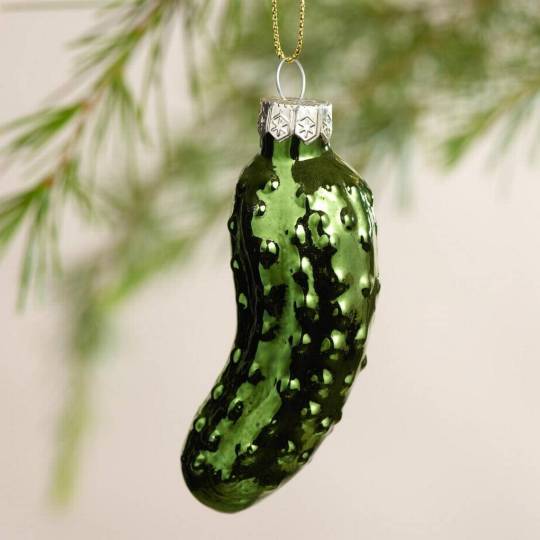
View On WordPress
#Boston#Christmas 2022#holidays#New England Christmas#short stories#The Christmas Pickle Battle#twenty-five days of Christmas
0 notes
Text
OTGW + Winter ambiance
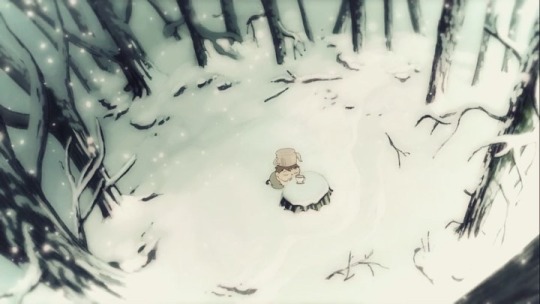

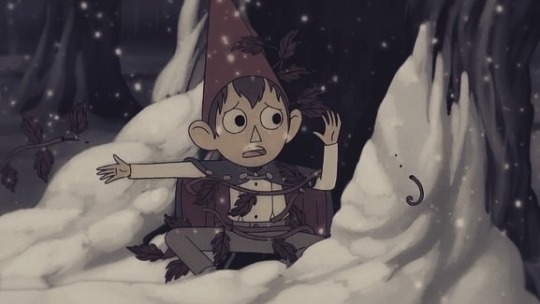
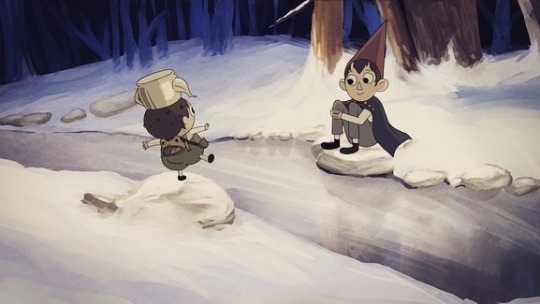
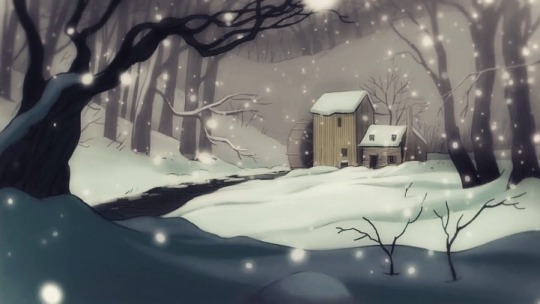

196 notes
·
View notes
Text

by sarahkjp
#Instagram#rhode island#new england#christmas decorations#Photography#Christmas#Xmas#Christmas Blog#Christmas Aesthetic#Merry Christmas#Holidays#Holiday Season#Festive#December#Christmas Decorations#Winter#Wintercozy#Cozy#Winter Wonderland
74 notes
·
View notes
Text

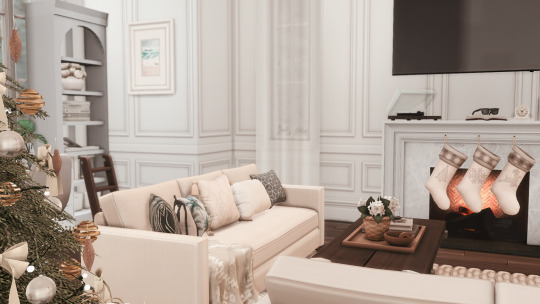
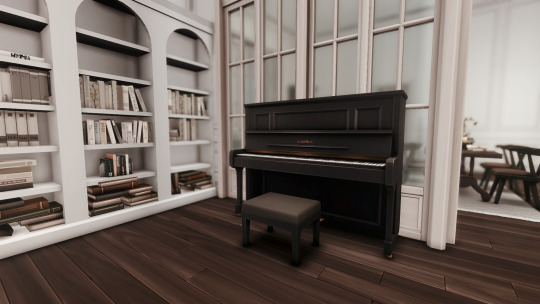
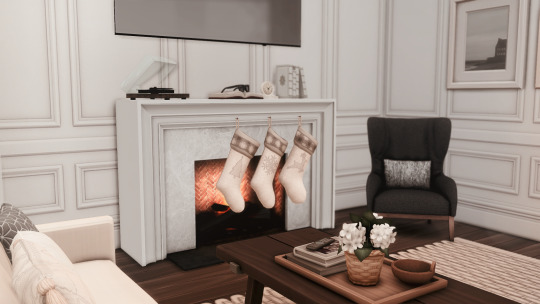
Pt 1 of Lila’s New England Home
Original shell build by @farfallasims
Also Merry Christmas to everyone!🍾🎊
#sims 4 gameplay#sims 4 story#sims 4#sims 4 screenshots#my sims#sims 4 custom content#the sims 4#tumblr fyp#fypシ゚viral#sims 4 community#new england#mcknight#christmas#sims interior#interior-design*
42 notes
·
View notes
Text
Home for Christmas
Words: 4,049
Summary: Matthew falls ill just before the family Christmas bash, and thinks he's missed the entire thing. However, once he hears that his baby brother is sick, Alfred concocts a bit of a holiday surprise. —— this fic is a little late, but Merry Christmas, everyone, and here's to many more!
Warnings: langauge, talk of family during holidays, nothing else that I can think of.
Author’s note: a belated gift to a dear friend, @draw-a-circle-thats-the-compass
------------------
For however many hundreds of winters Matthew Williams had endured in his home, be it in the warmth of an electric-heated home, or warding off frostbite in the untamed wilderness, he would never truly get used to the speed with which the solar night crept down from the pole. It was the dark especially that always sent spikes of dread into his bones, stealing away his warmth and setting pallor in his hands and feet, spreading chill upwards to his whole body.
This year, when he felt the frigid fingers of depression reaching through his chest with the 4:30 sunset, he mustered his willpower and on a spiteful whim bought tickets to Calgary. He had a seldom-used mountain cabin tucked away within the confines of Banff, and while he wasn’t sure the new park rangers still received the memo about him and his cabin during orientation, he was willing to invoke the Minister’s ire if it meant he could dust off his best skis and escape his mind on the slopes.
The cabin was just as he’d left it, and the radiators crackled their way to warm almost as soon as he turned them on. His wool blankets had a few new holes in them, but the quilts were warm and the fireplace clean, and he didn’t even have to replace any lightbulbs, not even in the groaning old icebox. His great snowy-white dog, Buddy, quickly found his favorite bear-fur rug and curled up by the fire, ready to dive into the snow alongside his human the next day.
It was only Matt’s luck that he woke up with a sore throat. He lived in denial for a whole day, basking in the perfect weather and flying down every slope he could get his skis on. But as the too-early sunset crept below the mountains, he began to realize he was swaying on his feet, and moreover, that he’d stopped sweating.
“Shit,” He huffed into his scarf. By the time he was back at his cabin, he could taste the fever on his breath.
Matt wasn’t sure what he’d managed to pick up on his journey westward, but whatever it was, be it cold or flu or covid or tuberculosis, within a few days it had him in a death grip and refused to let go. As he lie in bed, fever-dreaming his vacation away, the darkness grew and grew, and soon Matt felt himself falling into the well of despondency that refilled every winter.
Buddy kept him company, and he’d mustered the energy to call his Dutch beau, Jan, once or twice, but the fever had stolen his ability to tell time, and both times he’d spent about half of the call apologizing for waking him at two in the morning, and the other half repeating himself when Jan got lost in his feverish amalgamation of English and French. He had some anxiety-inducing number of unread text messages waiting for him in the corner of his phone, but reading was a doomed endeavor with his puffy, aching eyes. He watched whatever public tv stations still reached his ancient bunny-eared set, but ended up falling asleep nearly as soon as he sat down.
After some untold number of days, his fever broke, and while he was rationing the NyQuil he still had in his cupboards, he’d taken a full dose the first few nights after his fever and had been mostly comatose since. He’d been sound asleep on the couch one afternoon when his phone began to ring, buzzing loudly against the window sill just above him, until it vibrated its way fully off the sill and directly onto Matt’s head.
“Fucking putain,” he groaned and was shocked at how gravelly his voice came out. The offending device had fallen into his lap, buried somewhere in the folds of his blanket, still buzzing away. He fished it out and stabbed at the screen with squinted eyes, looking for the ‘ignore call’ button, but ended up hitting the ‘answer’ button instead. Only then did he see the caller’s name.
“...Mattie? You there?” asked Alfred from the other line. Matt sighed and sank back into bed, rubbing at the spot where his phone had hit, knowing it would be a lump by the end of the hour.
“Yeah?” he answered, trying to rein in his annoyance at being woken up.
“Holy shit bro, you sound terrible. Are you okay?”
“Sick,” Matt told him.
“Sick? I thought you were going skiing!” Matt closed his eyes, which made his head feel like he was spinning.
“I did. Skied. Got sick. Et voilà. ”
“Aww jeez Mattie. Do you think you’ll be good for our flight on Thursday?” Matt blinked.
“What flight?”
“...To London? Dad’s annual fussy Christmas bash, you know the drill.”
“That’s not until the 22nd.”
“...Matt, it’s December 20th.”
“What?” Matt’s voice cracked with his incredulity. “No, it’s… I got here on the 10th, it’s only been a couple of days, the 22nd isn’t until… I mean I don’t know when but it’s more than three days away.”
“Wait you think it’s only been—Mattie, how many days did you ski before you got sick?” Matt hesitated, embarrassed of the answer.
“One.”
“Oh my god,” Alfred sounded genuinely surprised, and it took him a moment to say, “ Matt, you’ve been sick for a week? And you still sound like this? You don’t still have a fever, do you?”
“No, it went away… I can’t remember.” Matt rubbed his face, and every inch ached. “Listen, it’s not December 19th, I swear, if you’re fucking with me–”
“Look at your phone.”
“What?”
“Look at the date on your phone.”
Matt did.
“Fuck,” he said, staring at the giant calendar date as though it would change if he stared long enough.
“Yeah,” Alfred’s voice was tinny away from his ear. Matt finally blinked and sank further under his blankets, and eventually brought the phone back to his face.
“You’re going to have to apologize to dad for me,” Matt said, “I thought it was… Jesus, I missed my flight back to Ottawa, shit.”
“Wait, you're still in Calgary?”
“Banff.”
“You didn’t leave the dog at home, did you?”
“No, he’s with me,” Matt could feel his voice getting more hoarse.
“Well that’s something. Man, you picked a helluva time to get sick, huh.”
“Apparently,” Matt wished he were comatose for all of this.
“Listen, slam some water—or gatorade, if you have it—and get some rest, okay? I know you’re feeding Buddy, but feed yourself too, alright?”
“I’m not hungry.”
“Matt.”
“...I’ll try.”
“Good. Listen, I gotta go, but I’ll talk to you soon, okay? Don’t die.”
“I’m not going to die.”
“Glad to hear it. Gotta go. Love you, kiddo, feel better.”
Matt began to respond, but before he could finish, Alfred hung up. Matt watched his brother’s smiling icon disappear from the screen, leaving only the giant, damning calendar. Matt stared at it and sighed, heart sinking down through his bed and the cabin itself and into the frozen ground below. There was no way he’d be in shape to fly to Ottawa in the next three days, to say nothing of flying to Ottawa and then across the Atlantic to London.
Buddy, though far too large to be a lapdog, leapt up onto the couch draped himself across Matt’s body, crawling on his belly until he was able to nose the man’s chin, giving it a lick.
“Yeah I know,” Matt sighed, petting the dog’s soft ears and wishing it could make him feel better. “I guess I should tell dad.” The thought made his heart sink even further. “Uncle Alisdair was going to bring his homemade whiskey and everything. Even Aunt Bridgid agreed to go this year. But I guess it’s just,” Matt craned his neck to look over into his small kitchen. There was an old, half-empty bottle of whiskey and a small bag of miniatures he’d picked up while waiting on his flight. “…that, you, me, and whatever the fuck is left in the fridge. Merry fucking Christmas, eh?” Buddy whined, and licked Matt’s face again. He sighed.
“Yeah, me neither.”
-----------------------------------
December 22nd came and went, and by the 23rd, Matthew was less sick than he had been, but still far from healthy.
“I imagine Uncle Rhys has already played referee to five fights by now, what d’you think?” He asked his dog. Buddy sneezed. “You’re right, maybe only four.” Matt tried to imagine it; Alfred and Dad, probably, Brighid and dad, certainly. If they were drunk enough, Zee and Uncle Alistair would fight about who was the better skier. Jack wouldn’t hurt a fly so long as he had a beer or cider in hand, though Alfred was certain to seek out arguments for sport—Matt really wished he could get his brother to understand that most people didn’t view arguments as fun.
In past years, he’d spent weeks complaining to Jan about the chaos that accompanied his family’s holiday’s reunions. Now, left alone in a cabin with nothing but his dog, whiskey, and his own thoughts, he realized that he missed it dearly, in the strangest way.
“I’m going to sleep,” he told his dog, who was practically asleep himself. “Hopefully until the New Year.”
It was an ironic cruelty that it was more difficult to sleep while sick than while healthy. It was as if his body was in a civil war over whether it needed to be asleep and miserable or awake and miserable. So, when Matt finally fell into a deep sleep, the half of his body that preferred to be asleep and miserable fought tooth and nail to keep him that way. Unfortunately, someone was trying to break into his house.
It was actually Buddy who finally roused him. Though the banging on the door was difficult to ignore, Buddy’s frantic barking was even harder to ignore. Head pounding, Matt rolled himself bodily out of bed, taking half of the quilt with him. He dragged it behind him, half draped over him, as he trudged to the door. Behind the old white curtain hanging over the door’s window, there was an imposing, human-shaped shadow.
“Fucking park rangers,” Matt groused, and glared down at Buddy. “I thought I told you to remind me to turn the lights off last night.” Buddy barked at him, and Matt sighed. “Listen,” he unlocked the door and pulled on the handle, “I’m allowed to be here, call your superintendent, I’m sure they’ll—Alfred?!”
“Finally!” beamed his brother, clad in a designer parka and what looked like a home-made toque, “I was beginning to think you were dead, which you promised you wouldn’t be. Can I come in? Fucking freezing out here.”
Matt stared for a prolonged number of seconds before he blurted, voice cracking:
“Shouldn’t you be in London?” Alfred looked affronted.
“While my baby brother is on his deathbed in the bumfuck nowhere, Alberta? No way!”
“Banff isn’t bumfuck nowhere, and I’m not dying.”
“Banff isn’t, but this cabin sure is, and I’m glad you’re not dying, now can I please come inside? I’m freezing my nuts off out here.” Matt stood aside, still processing the sight of his brother in the flesh. Buddy’s tail was wagging wildly as Alfred came inside, jumping at the chance to sniff the newcomer, dancing happily around the American in a way he did for no one else.
“You should be in London,” Matt said again, head aching.
“I wasn’t about to leave you here, you dumb fuck, jeez, it’s freezing in here, too.” Alfred cast a look down at Buddy. “You let him live like this?” a singular, insistent bark. “Ah, that tracks. Never was good at looking after himself.” He looked up back to Matt, shedding his mittens and shoving them into his coat pockets. “Alright, kiddo, let’s get you packed.”
“Packed?” Matt’s voice squeaked, and he realized even the small amount of talking he’d done with Alfred was killing his voice completely, “Alfred, I can’t go to London, we talked about this–”
“Who keeps talking about London? Not me—we’re going to my place. Idaho!”
“Idaho?” Matt’s brain took a while to buffer. “Wait, at your—”
“At my ranch? Yup!”
Ranch was not the word Matt would have used; Alfred was as rugged a rancher as any rancher alive or dead, but he also had what Matt could only refer to as a Kardashian sense of luxury, and enough money to blend the two lifestyles together. Matt realized all at once the expense Alfred must have spent to abandon the family Christmas, travel north, and prepare his Idaho mansion for his company.
“Alfred, you don’t have to, really—”
“Dude, cut the apologies, I’ve broken like, at least four international laws to park my cessna out back, so get your shit and let’s go. No arguing!”
“You what?!”
“C’mon, we’re wastin’ daylight!”
-----------------------------------
If Alfred weren’t already breaking laws north of the border for skipping customs, the FAA south of the border surely would’ve surely had complaints about the alterations he’d made to the rear seat of his plane. Where once there had been two passenger seats with requisite seatbelts and safety features, there was now a cozy, cot-sized bed with enough pillows and blankets for two king-sized beds. By the time Alfred had convinced Matt to “just get in the goddamn plane”, Buddy had already found the fluffiest pillow of the bunch and fallen asleep.
“Here, take this.” While the engines warmed up, Alfred leaned back to hand Matt a handful of gummies from the pilot’s seat.
“What is it?” Matt squinted at the candy.
“Delta 8 and melatonin,” Alfred said, replacing his specs with aviators and pulling on his headset. “Now make like your dog and sleep , kay? You look like you need it.”
Matt scoffed. “Thanks,” he said, and chewed the candy together. It was the last thing he remembered doing before Alfred shook him awake and gently informed him that they’d arrived in Bumfuck Nowhere—and it was actually bumfuck nowhere—Idaho.
-----------------------------------
Matt had visited Alfred’s Idaho Ranch-Mansion plenty of times since it’d been finished sometime in the late 90s, and the mountain drive from the airport to the wide-windowed lodge was an unexpected source of nostalgia of birthdays, holidays, and drunken benders past. Matt hauled himself to the window once the familiar hand-hewn wooden fences appeared, squinting against the blinding snowy paddocks until the first blanketed horses came into view. Matt couldn’t help but smile, maybe the first smile he’d entertained since falling ill. Alfred’s horse herd was made up of innumerable bloodlines, nowadays, but at the center of their pedigree was the blood of some sturdy old Morgans Matt had gifted to him during his civil war. Alfred kept a book that traced their sires all the way back to their Canadian forefathers, and seeing the newest generations never failed to swell Matt’s heart. As if sensing what his brother was looking at, Alfred said,
“Bonfire foaled twins this year—really late, too, October. I can’t remember if I told you that.”
“Really?”
“Yeah, both little stubborn shits too, probably why they both lived. I’ve got them up at the barn to keep warm.”
“What’d you name them?” Matt asked. Alfred grinned, uncharacteristically sheepish.
“Pumpkin and Sweet Potato.”
“Alfred, you have to stop naming them after food.”
“What?! It was October! They’re cute.”
As they pulled up the house, Alfred was still defending his food-inspired horse name choices when Matt spotted something strange in the driveway.
“Who’s car is that?” He asked, eyeing the plain white SUV parked to one side of the massive driveway.
“Oh, I forgot about that,” Alfred bent down to peer at the car. “They didn’t all fit in the Bronco, so I had to rent a car for ‘em.”
“For who?”
“I’ll explain later,” Alfred said, shifting the car into park. Matt didn’t miss the small smirk his brother tried to hide. Immediately, a knot of dread formed in his stomach. “Let’s just get you inside and situated, yeah?”
Alfred didn’t have to explain, because the moment he unlocked the front door, the familiar sounds of pointless arguments flooded his ears.
“-bloody fucking ridiculous,” said the very drunk, very Dad voice somewhere deeper into the house. On the doorstep, Matt froze halfway out of his shoes and shot a look at Alfred, who responded by smiling a bit wider, all-american dimples peaking through
“Well how about I conquer you for a century or ten and then I can tell you you’re ridiculous, you bloated fucken Gobshite! Oi, Jackie, back me up on this!”
“Is that aunt Brighid?” Matt asked, eyeing Alfred again. The American busied himself with physically helping Matt out of his boots.
“I have some slippers for you just inside—watch your step.”
“Oh shite, I think I hear someone at the door,” said a much closer, much more Australian voice, “I’ll be just a minute there, one second!”
“ Alfred how the fuck did you—” The door swung open in a rush.
“Save me,” begged a younger, freckled, brunette version of their father. The white puff at the end of his Santa Claus hat jumped when he did a double take at Matthew. His green eyes lit up like Christmas itself.
“Matt!” He greeted, smile spreading wide as the sun. “You look like shite, it’s so good to see you! Oi! You angry cunts!” he shouted over his shoulder, “Matt’s here!”
“What?”
“Oh, thank Christ. Matthew, come tell this woman—”
“You’ll not drag him into this! The bairn’s ill,”
“Are they,” Matt looked over at Alfred, who was still smiling like a smug bastard. “How did you—you’re—” He looked over at Jack, “I thought you were in London?”
“What?” Jack seemed honestly confused, glancing between Matt and Alfred. “Did the Yank seriously not tell you—” he gave Alfred a look, and upon seeing his smug expression, scoffed. “London was a wash this year,” he laughed, “Happy Christmas, mate, come on in.”
“How’d you get here?” Matt reiterated.
“Like I said,” Alfred piped up, pushing Matt towards the doorway. Looking down, Matt realized that, in his shock, Alfred had been the one to actually remove his shoes for him, “they didn’t all fit in the Bronco, so most of them got here by the last Grand Cherokee Avis had to offer. Go on, we’re letting the cold in.” Before Matt could step fully into the threshold, Buddy had bolted in between his legs, tail alert and wagging, eager to see the rest of the family.
“Buddy!” A feminine voice cried, “C’mere you big baby, say hello to auntie Zee,” a series of happy yelps followed, accompanied by drunken laughter.
“Well the dog is here,” Uncle Alisdair said in his loud brogue, “where’s the rest of the circus?”
“We’re here too,” Alfred said, walking behind Matt into the main living area.
“Och, there they are!”
“Matthew, so good to see you,” Father looked genuinely happy to see him, soft smile creasing his eyes in the way that reminded Matt of the happiest parts of his childhood. “Come here, let me look at you.”
“Matt! Croeso ! What’s your poison? Mulled wine? Whiskey? Cider?”
“The bairn is sick, Rhys—”
“Alcohol never hurt anyone on Christmas,”
“Mary and all the saints, how have you lived this long—”
“Come over here and give us a hug, you muppets!” cried Zee, spreading her arms wide, a nearly-empty bottle of wine in one fist.
Matt was frozen in place, still coming off his melatonin and wondering if he was feverish again. He was dimly aware that his jaw was hanging open as he took in the gaggle of family packed into Alfred’s living room—dad, both uncles, Jack, Zee, even aunt Brighid. There were twinkling lights hung all around the vaulted ceilings and reflecting on the tall windows, a fresh-cut Christmas tree lit in the corner with a haphazard collection of presents and duty-free bags piled below, punch and whiskey and wine and beer stacked in disorganized bunches along the nearby bar counter.
“—sure he’s alright?” Zee was asking, when his ears decided to work again.
“He’s fine,” he heard Alfred say, and a warm hand rested on his shoulder. “He’s just a bit surprised.”
“You’re,” Matt said, looking around at them all, and everyone went quiet to listen to him. “You’re not. You’re meant to be in London,” Matt insisted.
“Nonsense!” Alisdair spoke up first. “We go to London every year, it was old enough a century ago, time for a change of pace.” He ignored it when Arthur glared at him. “‘Sides, you brother Money Bags over here promised he would take care of everything, else your dad wouldn’t have ever let TSA so much as look at his Christmas pudding—”
“ Alisdair,” Arthur hissed.
“You didn’t think we’d leave you alone, did you? On Christmas?” Jack was completely earnest when he said it. Seeing his baby brother’s face, and the faces of his ridiculous, loud, chaotic family, Matt suddenly found himself with watery eyes threatening to spill over.
“The kid’s on a few drugs right now, give him a little bit to recover,” laughed Alfred, arm around Matt’s shoulders. “He needs some rest. Come on, kiddo, let’s go get you set up in your—” Alfred paused and looked at their little brother.
“Jack, did you get your stuff—”
“Yeah, yeah,” Jack waved dismissively. “I moved rooms.”
“Awesome. Come on, kiddo, let’s get you in bed before you fall over.”
“We’ll be here when you wake up!” Rhys called.
“Unless we all have hangovers,” Zee amended, and she and Rhys laughed together. Alfred shook his head and led Matt to his usual room, the only bedroom in the house that had a heated bed.
“Upsy-daisy,” Alfred said, helping Matt up onto the cushioned mattress, pulling out the duvet before Matt sat on it and pulling it immediately over the younger man’s body up to his neck, cozy and warm.
“Hey, hey,” Matt hadn’t realized he’d let tears fall until Alfred was sitting on the bed beside him, brushing hair behind his ear and speaking to him softly in the way that had meant safe since he was a baby. “I wanted to surprise you, not incapacitate you, are you alright?”
Matt wiped his eyes, remembering his lonely cabin and the escape he’d been too sick to enjoy. Alfred’s house was warm and safe, and smelt of Christmas spices that harkened back to his earliest years.
“Thank you,” Matt managed, gripping Alfred’s sleeve. “I don’t know how you—I didn’t think—” He sighed, feeling exactly how tired he was. “Thanks, Al.”
Al responded by wrapping him in a hug, warm and tight and safe and everything Matt needed to finally let himself rest. Over Alfred’s shoulder, he could see his dog sneak into the room, hopping up onto the foot of the bed.
“Get some good rest, okay? And don’t worry about anything,” Alfred said into his ear, bending down until Matt was lying back in bed. “We’ll all be here in the morning.”
“The fuck I did! It was your goddamned idea in the first place!” Alisdair’s bellow echoed down the hall and their brotherly moment broke so they could both whip their heads to the door to listen.
“My idea?!” countered their father, in the self-righteous tone that said he’d been at the rum punch a little too much that night, “The entire stupid thing was your doing, beginning to end!”
“You know,” came a third voice, “ I’m fairly sure that—”
“Shut up, Rhys!” Shouted Alisdair and Father at once.
Alfred sighed. “Well, we’ll all probably be here in the morning. I’ll tell them to keep it down.”
“No,” Matt said, letting out a tired laugh. The bickering of his father and uncles blurred together in a familiar, lulling haze as sleep beckoned. “No, it’s okay. Merry Christmas, Alfred.” Matt was almost asleep as soon as his head hit the pillow, mind’s eye filled with twinkling lights and familiar smiles, morphing into pleasant dreams of holidays past. He was still just awake enough to feel it when Alfred bent to kiss his forehead and brush a hand over his hair.
“Merry Christmas, Mattie. It wouldn’t be the same without you.”
#hetalia#hws america#hws canada#aph america#aph canada#hws england#aph england#hws australia#aph australia#hws new zealand#aph new zealand#hws wales#hws scotland#aph wales#aph scotland#christmas#merry christmas#christmas fanfic#my fanfic#my writing
198 notes
·
View notes